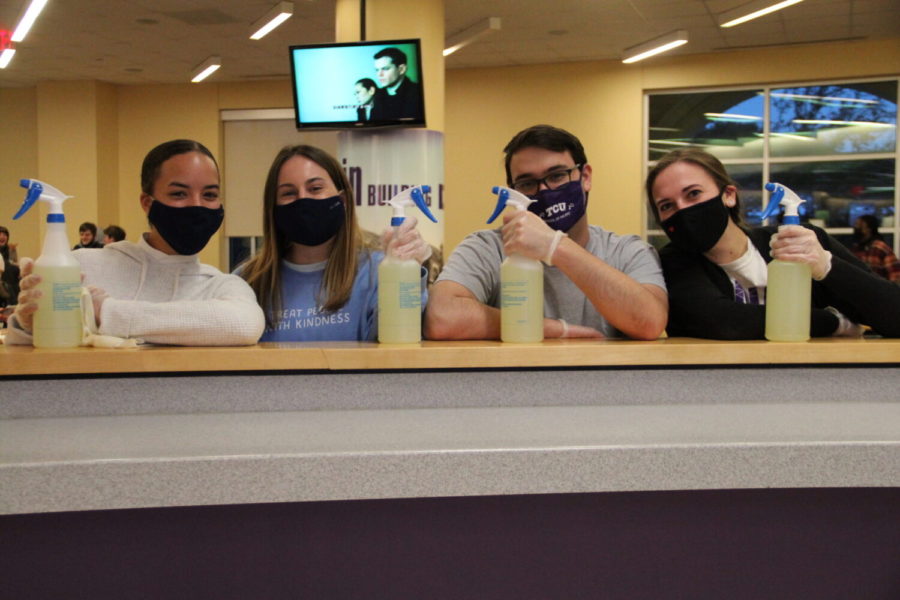The freezing temperatures and icy roads that brought much of Texas to halt in February triggered an emergency protocol for TCU Dining Services as the university scrambled to keep students fed.
For four days – the longest emergency stretch in a decade – resident assistants (RAs) and hall directors pitched in to help dining staff.
Although TCU provided hotel rooms so the dining hall staff wouldn’t have to risk driving to and from their homes during severe weather conditions, there weren’t enough people on hand and the protocols were enacted.
RAs wiped down tables and provided a sense of community building for their residents, using a rotation created by hall directors for each mealtime, according to Director of Housing and Residence Life (HRL) Craig Allen.
Some residential staff even served food when staff numbers were at their lowest.
Read More: TCU extends use of campus recreation center as shelter for students
The prolonged storm, which left many off-campus students without power for multiple days, added to the strain.
“[We] served more meals in those first few days than we serve on an average day any day of the semester, and we did it during a shorter time period because everyone just came at once,” Allen said.
Not an everyday occurrence
The last time TCU Dining Services utilized the protocol was in February 2015.
Allen said many hall directors and RAs were unaware they would be asked to step up.

“I was personally not aware of the emergency protocol until about a week before we were forecasted to experience severe winter weather,” said Emily Morales, junior mechanical engineering major and an RA in King Hall.
Allen said that moving forward, HRL will be sure to mention the protocols and make sure that residence staff know that it is a possibility.
Some RAs said working in Market Square and King Family Commons was an opportunity to help develop their sense of community during the storm.
Junior nursing major Zea Maroon, who is an RA in Clark Hall, said she developed an appreciation for the hard work carried out daily by dining staff, and she had time to interact with residents more than she usually would.
Allen said the RAs and hall directors won the appreciation of students.
He also said a group of students brought in a bag of thank you notes to give to dining staff on Feb. 19, and that the graciousness of students and staff really “boosted morale” and allowed for the functioning of the dining halls under such unprecedented conditions.










